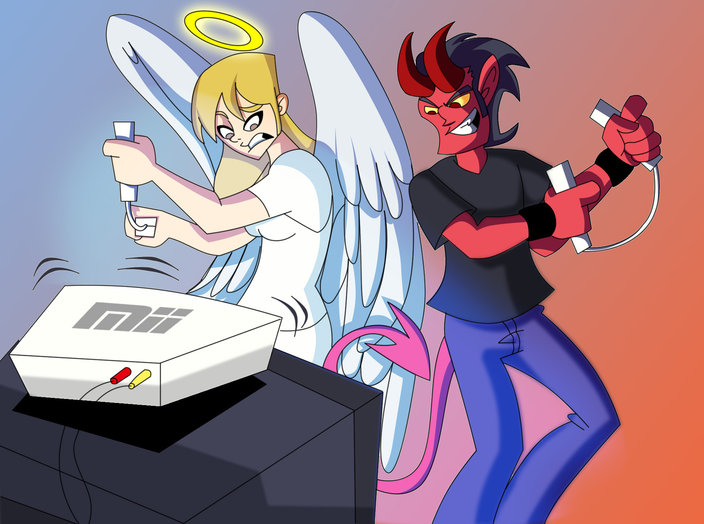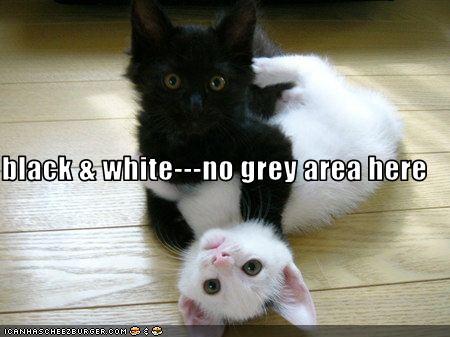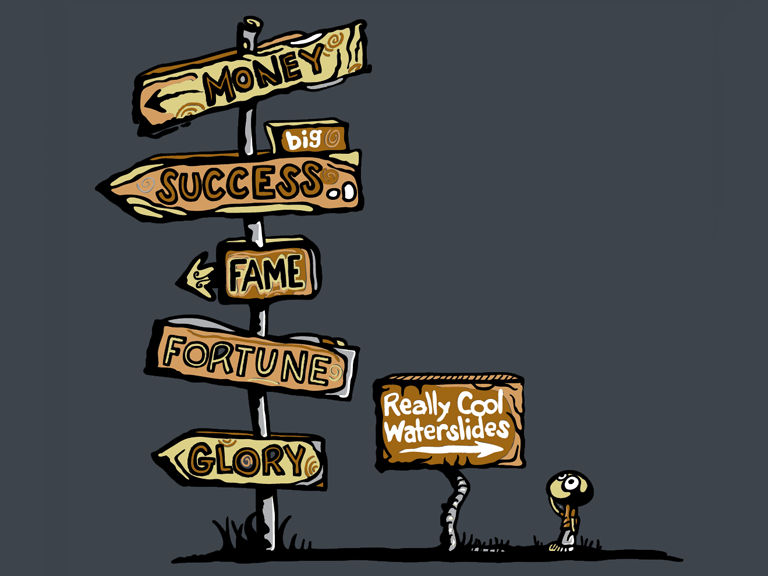All games are about some sort of choice. Do I jump on the goomba or over? Should I change weapon for this encounter? Fight or Run? These choices don’t give players an ethical challenge. You don’t think about the goomba’s family that will receive his last paycheck. Your crowbar won’t feel emotional rejection when you find the shotgun.
Sometimes games bring a little more to the table. Morality. Moral choices in video games give the player pause and add to the gaming experience. We become emotionally invested when making decisions that have consequences. This week I look into how games try to play on our morality.

Light and Dark
Even straightforward action titles like Dante’s Inferno and InFAMOUS try to emulate moral choices. In Dante’s Inferno, the player chooses to absolve or punish souls in hell. The game tries to tell us these are good and evil choices respectively. Firstly, these are souls in hell.
According to whoever is running the show, they have clearly done something to deserve the torment. Wouldn’t further punishing the souls actually be the righteous thing to do? To absolve the soul would be to forgive it of its sins. It just tried to kill you. What if the soul hasn’t learned its lesson yet?
Secondly and more importantly; in a game like Dante’s Inferno or InFAMOUS, the moral choices aren’t linked to any kind of emotion or empathy. When faced with the choice of giving food to children or keeping it for myself, the decision becomes about what reward I will receive.
To combat this, game developers need to create something players can have an emotional bond with. I want to care about the non-player characters in this gaming world. I want them to crack jokes occasionally, be helpful at times and they should tell me how much they appreciate the help I’m giving. If they just scream for help and run around in circles, I’m leaving them for the zombies.

Moral Choices in Video Games
There are games that go the next step of making moral choices. They try and make you care. Ok, so you have me emotionally attached to these people. They are my people. I am their Lord. This is the Fable universe. The people are funny and they clap when I dance or fart in public. I want to do what is right by them. The three Fable games throw almost every challenge at you with two paths to choose. Good and Evil.
I invariably seem to go the path of good in any Lionhead Studios game. The evil path usually only rewards short term gains. Good choices usually make people clap and cheer more often. Black & White 2 plus the first two Fable games had a very clear, “This is good, this is evil” path. It was clear what the righteous decisions were. This is Deontology: The consequences don’t really matter because moral judgement is contained within the act alone. The Fable games have no room for grey areas.
Few games can give you decisions that could be seen as both good or bad. I’ve mentioned in a previous article that Deus Ex gives the player choices about which faction to join. This makes things interesting and provides replay value. Having morally grey areas makes the player think more about their choices.
Fallout 3 and New Vegas have some choices like this. I thought I would do the right thing by telling the Sheriff about a creepy suit that wants me to blow up the town. Not a great outcome for the Sheriff, although it did mean I got to rock around the wasteland in my new Sheriff hat. The Sheriff was a stand up nice guy, I feel bad now for doing the right thing. Damn you Fallout for playing on my heartstrings.
Similarly Fable 3 forced me to make a decision towards the start of the game. Neither choice was good or evil. Although I suppose one was nobler and one was selfish.
The addition of a time limit to make a decision made things even more tense. Being thrust into this kind of situation really adds that emotional bond I referred to earlier. After making me care and like a character, I have the choice of losing them forever or having the masses hate and despise me.
For moral choices to work they need to be more like real life. There are morally grey areas. What seems like an evil choice may in fact lead to saving a kitten. I don’t want to do what seems like the good thing only to have it doom some people I care about.
Games are getting there, but can we stop making the decisions so obviously good or evil? Please? It doesn’t help when they make all the paragon choices blue and renegade choices red.
Game developers need to give us real moral choices if they want us to care. We’re getting jaded. Particularly because I’m sick of getting penalised for stealing everything in the New Vegas, especially when no-one saw me do it.




[…] and Renegade are here to stay but unlike other alignment choices in video games, Mass Effect’s isn’t about Good and […]
[…] Image Credit: http://128.199.85.8/opinion/good-and-evil-moral-choices-in-video-games-29/ […]
[…] The topics covered include: The Problem of the External World; Dualism and Personal Identity; Artificial and Human Intelligence in the Philosophy of Mind; The Idea of Interactive Art and The Moral Effects of Video Games. […]
[…] for other next-generation consoles. THIEF promises to provide many choices for players, but do Choices in Video Games always work […]
[…] get emotionally involved with – something that is hugely important for the game’s karmic system. Creating a world that gets players so invested is a rare quality and makes Infamous: Second Son my […]